Lucy brings a wealth of experience from over 10 years working in the Northern Territory with women, men, children, families and communities who have been touched by the effects of domestic and family violence, child abuse, deep trans-generational grief and loss, mental health issues, alcohol and drugs, and other traumatic experience. Since then, Lucy has worked in private practice in rural NSW and now Central Gippsland.
Lucy’s time working alongside Elders and community leaders on the Tiwi Islands, has greatly influenced her understanding, knowledge and skills in working with people, towards their own goals for change.
Lucy’s therapeutic approach incorporates Focused Psychological Therapies including narrative therapy, ACT and cognitive-based mindfulness practice along with art therapy and ecotherapy, which have shown to be effective and respectful across all cultures. Lucy weaves together aspects of these approaches and others, depending on the expressed needs and interests of the people she is working with.
Narrative Therapy
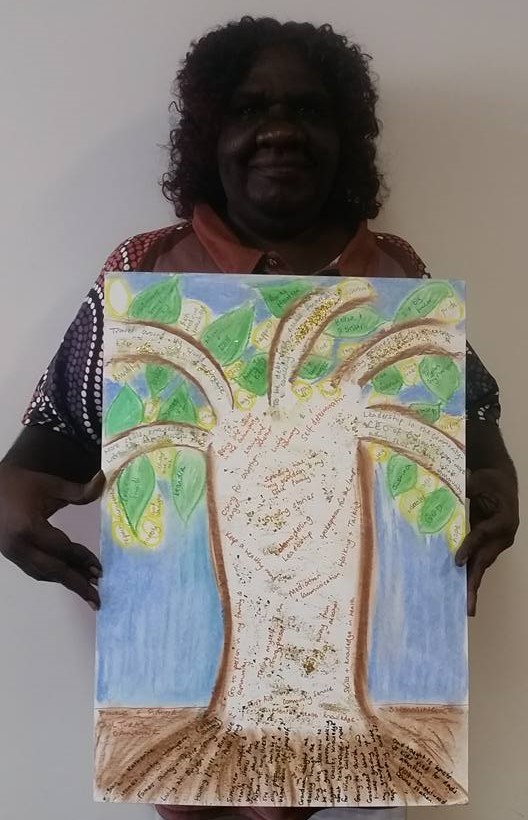 Narrative therapy is an approach that seeks to assist people to tell the stories of their lives in ways that open up opportunities for change and growth. Here are some important principles of this approach, that we take seriously when working with you:
Narrative therapy is an approach that seeks to assist people to tell the stories of their lives in ways that open up opportunities for change and growth. Here are some important principles of this approach, that we take seriously when working with you:
- You are the expert of your own life.
- You are not the problem, your problem is the problem.
- You have many stories, some of which may be ‘problem stories’, and others which are ‘preferred stories’.
- You bring many skills, abilities, commitments, values, beliefs, hopes, dreams and intentions that will assist in finding a way forward.
- There are many possible directions that our conversation might take, and therefore many possible ways of resolving a problem. You play a big part in determining the direction of our conversation.
Narrative therapy is part of our practice framework in both our counselling services and groupwork programs. We aim to find ways of re-authoring stories of identity alongside the people we work with, to find the stories they want to tell about themselves. These may be stories about skills, knowledge, abilities and values that have been important in getting through hard times. There may also be opportunities for connecting and contributing stories of strength to the lives of others who are going through similar hard times.
Eco Therapy
Eco-therapy is a broad term covering many nature-based methods of physical and psychological healing. They are all founded on the idea that healing is possible through a positive relationship with and in nature, and that the earth stands to benefit from this connection. A key principle is that humans are intimately connected with and embedded in nature, not separate to nature. Like any ecosystem, if one part is sick, then this affects the health of the other. Likewise, it is in receiving and experiencing healing from nature, that we are inspired to give back to the earth. Lucy’s particular skills and interests are in Therapeutic Horticulture, Nature and Forest Therapy, and she sometimes incorporates Animals in Therapy with children. Lucy is also a climate-conscious practitioner, with training and understanding of the impacts of climate change on people’s mental health and wellbeing.
Lucy is trained in a method called Nature and Forest Therapy (NFT). NFT is inspired by the traditional Japanese practice of Shinrin Yoku (or forest bathing) which is the simple practice of taking a slow mindful walk in nature, igniting all of your senses to engage with your surroundings. Sessions take place in State Forests, beaches, lakes and parks in the Gippsland region. As a member of Therapeutic Horticulture Australia, she offers therapeutic sessions in private gardens, public community gardens or in the outdoors at Yintarini Farm. Sometimes animals are involved in sessions and pets are welcome to attend.
There are many exciting developments in scientific research showing the benefits of mindfulness in nature to mental health, social and emotional wellbeing. While ecotherapy is a less invasive intervention than other treatments for physical and mental health, your well-being is always our first priority and we work with you to monitor any safety or health concerns.
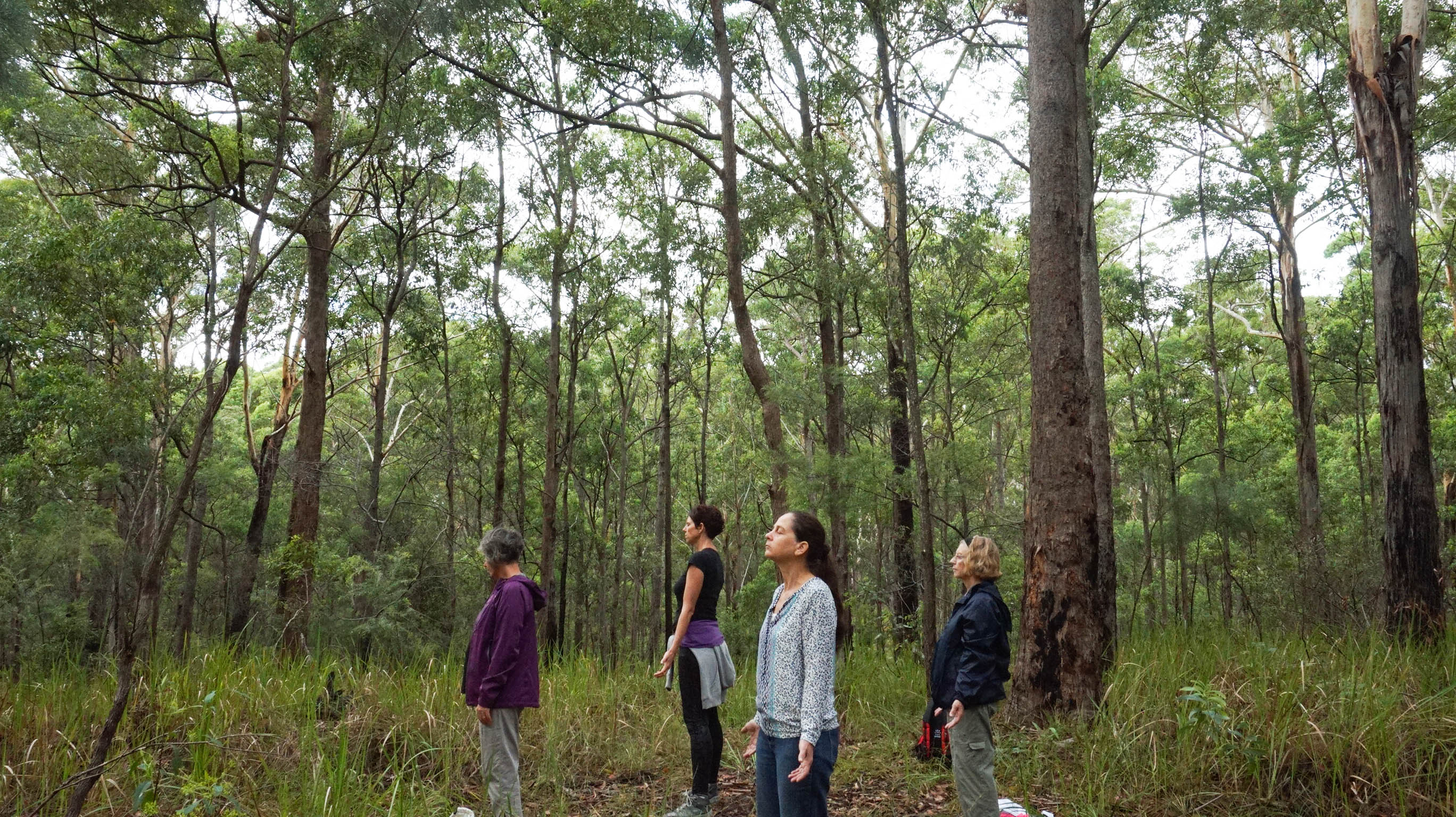
Mindfulness-Based Cognitive Therapy
It is the intention of depression, anxiety and other mental health issues to take us away from living in the present moment. We might find ourselves ruminating on past unpleasant experiences or worrying about what might happen in the future.
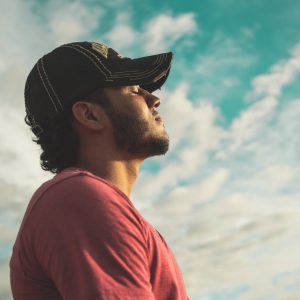 Mindfulness is an awareness practice that brings us back to the present moment by focusing our attention on the experience of the body, to stop the ‘overthinking’ and to learn to accept and sit with unpleasant feelings.
Mindfulness is an awareness practice that brings us back to the present moment by focusing our attention on the experience of the body, to stop the ‘overthinking’ and to learn to accept and sit with unpleasant feelings.
Buddhist monks have been practising mindfulness meditation for centuries, maintaining that humans have the capacity to sit in the discomfort of pain without adding the extra layers of suffering caused by our minds. Now there is a mountain of evidence-based research to show that mindfulness practice literally rewires the structures and chemistry of the brain, to form new patterns of thinking and behaviours in responding to stress. Studies demonstrate benefits such as increased attention, mental clarity, overall sense of well-being, improved immunity, improved emotional-social intelligence, better sleep, emotional self regulation, more kindness and empathy.
Mindfulness is not only a way of being able to manage distress when it arises, but to also re-discover and relish moments of joy, comfort and pleasure in life.
Art Therapy
Art therapy uses art media as the primary mode of communication in a therapeutic setting. This approach helps people to change and grow on a personal level through the use of art materials in a safe, reflective environment. Art therapy is not about being a good artist, but about expressing yourself. There is no right or wrong way to make art; every method of communication is valid.
Everyone brings their own unique experience and cultural influences to the creative process, allowing you to make meaning from your own creation. We offer a range of materials and methods from painting, drawing and collage to claywork and using found objects in nature. We also have a range of strengths cards, photo cards, books and creative storytelling resources to assist the communication process.
Art therapy integrated with narrative therapy in counselling is helpful for those that find it difficult to tell their story or express their thoughts and feelings verbally. We also incorporate creative, art making invitations on many of our Nature Therapy walks.
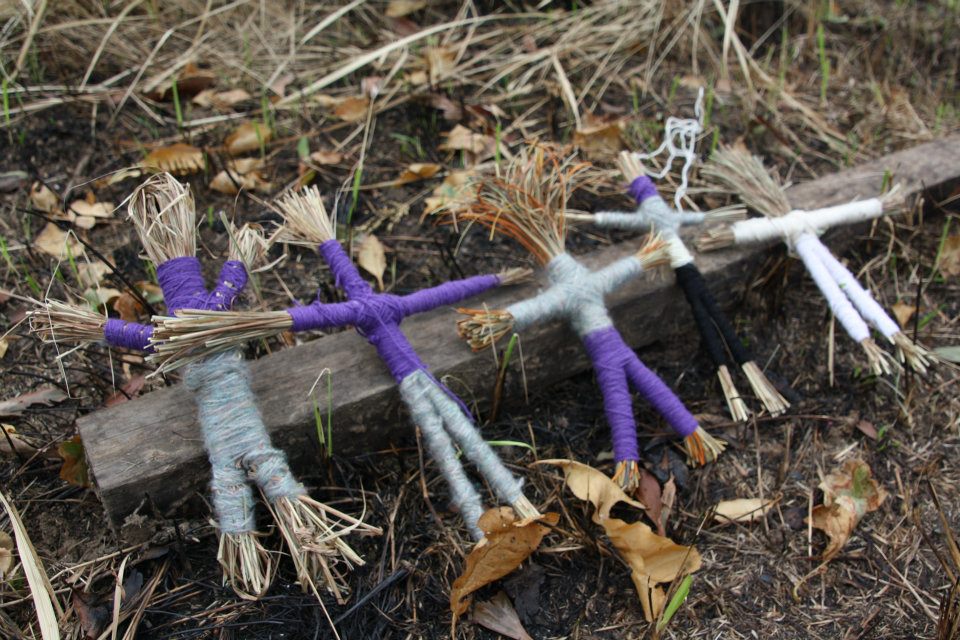
Acceptance and Commitment Therapy
A dominant idea in society is that we should be able to control our emotions, manage our thoughts and just get on with our lives. But instead many of us try to bury or numb our emotions by using substances or distractions, or try to replace ‘negative’ thoughts with ‘positive’ ones. But so often it just doesn’t work.
ACT is based on the premise that it is counterproductive to try to control difficult thoughts and feelings and suppressing them just leads to more distress. The six core processes of the ACT approach include:
- Acknowledging and accepting the full range of human emotions and thoughts, rather than trying to avoid or alter them
- Developing awareness of our difficult thoughts and feelings, seeing them for what they are and unhooking from them
- Being mindful and grounding ourselves in the present moment in our body to be able to observe thoughts and feelings without judgement
- Developing your ‘observer self’ to be able to notice your present moment experience, without blindly being a participant of it.
- Defining your personal values and how you want to keep showing up in the world, no matter what obstacles are put in your way
- Taking committed action towards the things that matter to you
Expressive Therapies for Children 6+
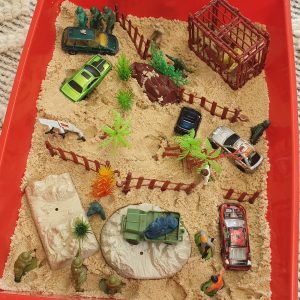 Lucy utilises a combination of therapies for working with children including narrative, eco-therapy, art and play therapy, aimed at helping children tell the stories of their lives and unearth their inner skills, knowledge and values for getting through difficult times.
Lucy utilises a combination of therapies for working with children including narrative, eco-therapy, art and play therapy, aimed at helping children tell the stories of their lives and unearth their inner skills, knowledge and values for getting through difficult times.
Sand tray play offers children the opportunity to express their internal and external worlds including thoughts and feelings, through play with miniature toys and the contained boundaries of a sand box. ‘Problems’ are able to be externalised and explored, alternative stories created based on the child’s own solutions to problems, and hopes, wishes or dreams expressed.
Art therapy is also used in collaboration with narrative therapy to help non-verbal children communicate and express themselves.
Children whose bodies need to move can access eco-therapy in the outdoors, walk and talk therapy, get their hands dirty in the garden or interact with animals.
Lucy’s resource collection includes strengths cards, games, picture books, labyrinths, miniature toys and a range of art materials for drawing, painting, clay work or collage.
Trauma Informed Social Work Practice
Trauma informed care is a deeply holistic framework for understanding the intersection between people and social problems. The concept is not to view a person as needing to be fixed, but to understand how events have shaped the person’s behaviour and why problems exist.
Larrakia man, Ash Dargun best sums up “looking through a trauma informed lens…where our perspective shifts from ‘something is wrong with this person’ to ‘something has happened to this person’”. It requires a large step away from the Western dominant medical models which oppress and disempower people, allowing the practitioner to ‘be with’ rather than ‘do something to’ a person.
The latest research from neuroscience is informing the development of trauma informed approaches to counselling. The impacts of toxic stress (trauma) on the brain are most deeply felt in childhood, causing long term problems in children’s growth and development if left unattended. A neurobiological perspective help us understand why adults continue to respond in unhelpful ways to stressful experiences later in life. The brain is simply reacting to perceived threats the way it always has and the person may not even realise what impact their behaviour is having on others. Trauma-informed practices seek to reshape the brain or lay down new neural pathways so that new patterns of behaviour become engrained. Practices such as meditation and mindfulness are helpful in telling our brains that there is no need to set off the alarm anymore. Because trauma experiences are locked away in an unconscious part of the brain, a neuroscience perspective helps us to understand that telling specific details about a trauma experience may not be possible, may in fact be re-traumatising, and is not even necessary in order to promote healing.
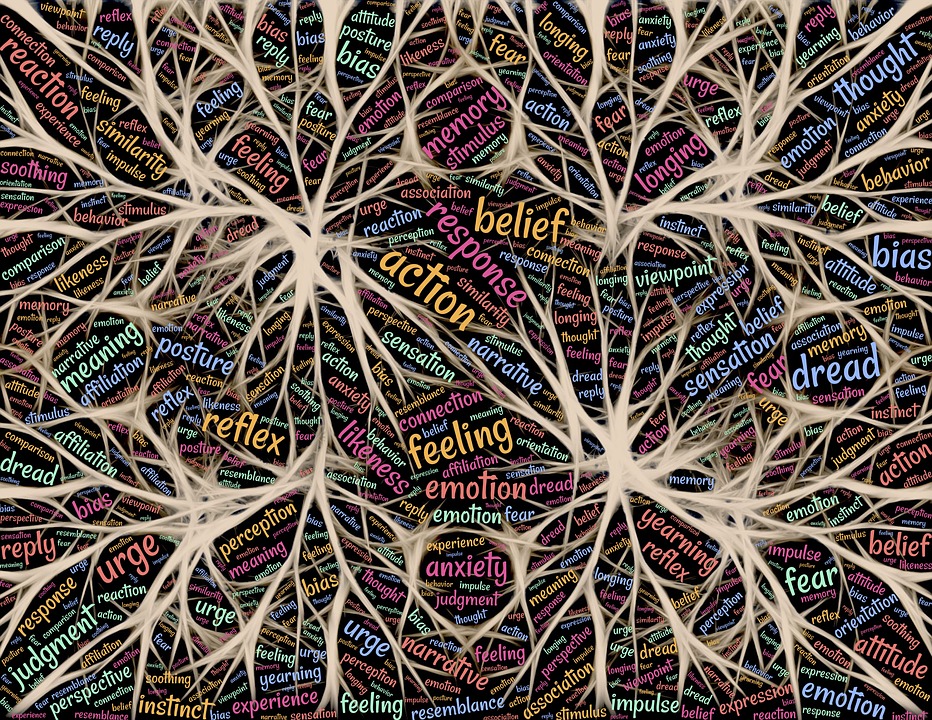
Acknowledging Indigenous Perspectives
Lucy has spent a decade working alongside Aboriginal Elders, mentors, community leaders and support workers in their quest to bring healing to the lives of their family members and community. Lucy has spent time on country learning about and witnessing traditional healing practices and developing an understanding of the connection between Aboriginal people and their country. This experience has shaped her perspective of how to live and work authentically; shifting away from a dominant colonizing way of seeing the world to respectfully acknowledge and engage with Indigenous way of knowing and being.
Lucy has provided mentorship and training to Aboriginal people moving into support work roles, practiced a ‘two way learning’ approach alongside Aboriginal co-workers to provide counselling services to Aboriginal children and families, facilitated a number of Family Healing Bush Camps on the Tiwi Islands and co-founded ‘The Healing Our Children’ project, a trauma-prevention project for mothers and their young children.
Lucy will always carry with her the histories, stories, wisdom and the multi-layered perspectives from her time in the Northern Territory, in working with people from different cultural and minority backgrounds.
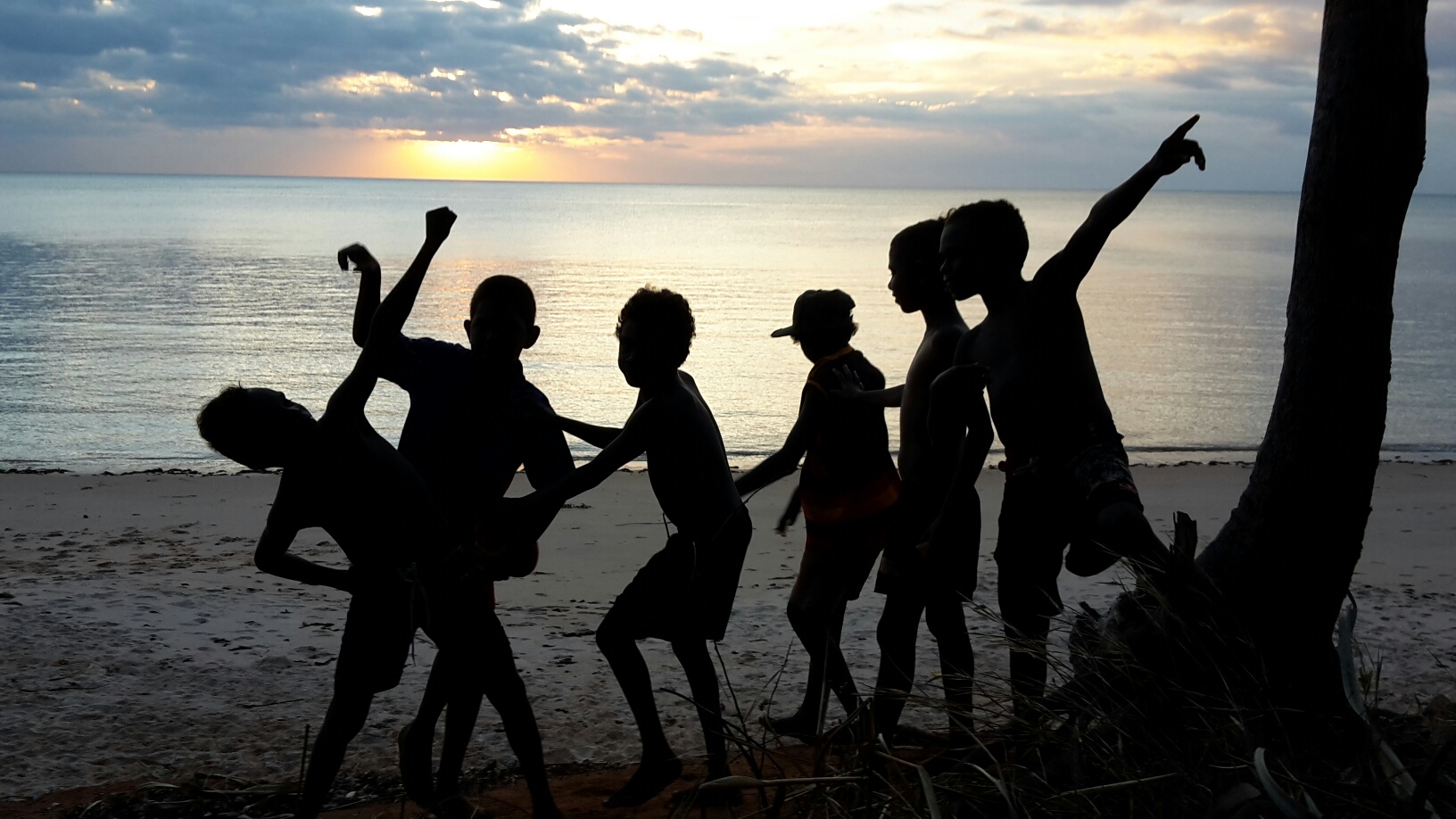
Using Metaphors in Counselling and Therapeutic Group Work
Much of Lucy’s experience of using metaphors in therapy has grown out of her work with Aboriginal Elders in the Northern Territory. She discovered that children naturally communicated in metaphorical ways, allowing them to talk in the third person, rather than directly about their experience.
Metaphors are simply ‘a figure of speech in which a word or phrase is applied to an object or action to which it is not literally applicable’. As storytellers, we use metaphors to communicate every day because they express ideas and emotions in ways that are easier to describe and are loaded with meaning. As listeners, we don’t interpret the literal meaning of what is expressed, but an image comes to our mind and we gain more insight into what the person is trying to say.
In counselling, metaphors are a safe way for clients to communicate with the counsellor where talking directly about experience is too difficult or re-traumatising. Being in nature presents many opportunities to engage with metaphorical language to explore our emotions, our thoughts and our stories. Our work has included exploring concepts such as the ‘storms of life’ (what gets in the way) and ‘forests of life’ (the networks of support that help us recover) with groups and communities.
It has been such a powerful tool for people in their recovery and healing, that Lucy decided to name her private practice ‘…metaphorically speaking’.
Lucy also has knowledge and training in a number of other approaches including Somatic Body Work, Solutions Focused Therapy, Strengths Based Practice, Mental Health and Nutrition, Cognitive Behavioural Therapy, Interpersonal Therapy and Child Inclusive Practice (CIP).
